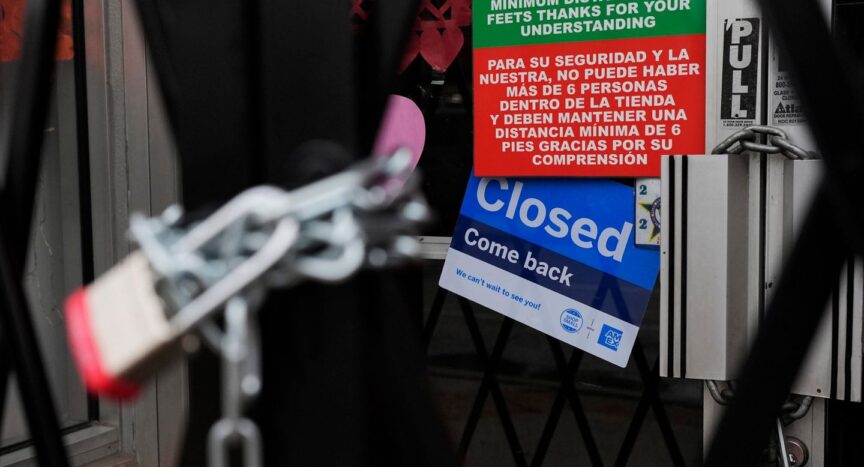Several businesses from day cares to grocery stores and hair salons closed Monday across the U.S. in protest of Trump’s immigration policies.
Several businesses from day cares to grocery stores and hair salons closed Monday across the U.S. in a loosely organized day of protest against President Donald Trump’s immigration policies.
But participation in the “day without immigrants” faced headwinds from employees and business owners who said they need the income — especially as rumors of widespread raids, often false, are leaving many migrant communities afraid to venture outside, affecting even some schools. Monday’s event also came on the heels of street protests Sunday in California and elsewhere.
Noel Xavier, organizing director for the North Atlantic States Regional Council of Carpenters, said that while it’s important to remind the country of the value migrant workers bring to the communities they toil in, many workers couldn’t afford to take a day off.
“If I don’t go to work today, that’s one day less that I have, you know, to be able to pay for my next rent,” Xavier said of the prevailing sentiment among the workers he organizes. “I didn’t see this big rallying around being able to do that, or having the luxury to be able to do that.”
Jaime di Paulo, president of the Illinois Hispanic Chamber of Commerce, noted that small restaurants and retailers in Chicago’s biggest Latino neighborhoods closed, but most major employers as well as those in construction and other industries were operating normally.
“This is only hurting our own community,” he said.
Andrea Toro decided to close her hair salon in Chicago’s Pilsen neighborhood. She added that many of her clients are teachers and have seen children missing school since Trump took office last month because they fear it may not be safe to go. In Chicago, as in San Diego, school districts said some students and families were participating in Monday’s protest.
“If we don’t have immigrants, we don’t have anything work around here,” said Toro, who is from Puerto Rico. “If we’re mute, we’re in silence, then they’re going to do whatever they want.”
El Burrito Mercado, which boomed from a small Latino market in the 1970s to one of the most widely recognized restaurant, catering and grocery businesses in St. Paul, Minnesota, shut for the whole day in 2017 — when the latest major such event was held at the beginning of the first Trump administration.
But on Monday, it stayed open for a few hours with a skeleton crew, said co-owner Milissa Silva.
Her parents emigrated from Mexico, and most of the 90 employees have Mexican roots. But many staffers expressed concern about losing a work day and about depriving people in the neighborhood of access to groceries.
Similarly, the Spanish-immersion day care provider Tierra Encantada kept its 14 locations open. But many parents decided to keep their children home Monday in solidarity with the mostly first and second-generation immigrant workforce, said CEO Kristen Denzer.
Families — most of them not immigrants — pulled some 450 children from day care and preschool, about 70% of those enrolled in Minnesota alone, where most of the organization’s centers are, Denzer said. Several staffers who had been on the fence decided to take the day after the show of support.
In Utah, several Latino-owned stores, restaurants and supermarkets closed their doors.
“The movement today, it’s more about being compassionate,” said state Sen. Luz Escamilla, a Democrat and Senate minority leader. “A lot of companies and communities are coming together in the state just to raise awareness of how much this has created a fear.”
Asked about the day of protest at his Monday media availability, Utah Senate President Stuart Adams, a Republican, defended Trump’s immigration policies and said law-abiding immigrants should have nothing to worry about.
“The only people that are being talked about being deported (are) those that are criminals, those that are on probation, those bad people who have committed difficult crimes,” Adams said.
While immigration enforcement officers continue to target for deportation migrants considered public safety and national security threats, a big change from the Biden administration is that officers can now arrest people without legal status if they run across them during operations.
More must-reads:





